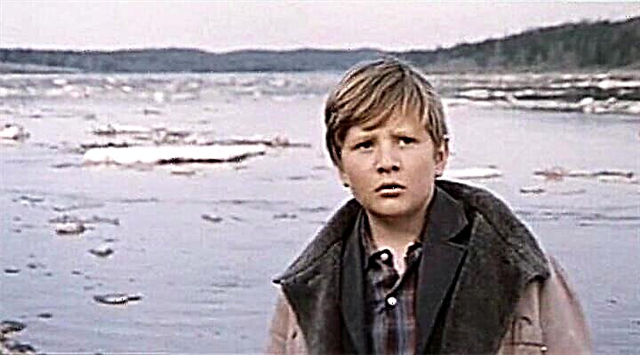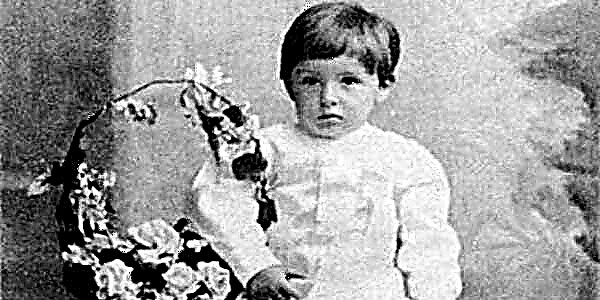Germaine Malorty, nicknamed Mushetta, the sixteen-year-old daughter of a Campanian brewer, once entering the dining room with a full bucket of fresh milk, felt unwell; parents immediately guessed that she was pregnant. The stubborn girl does not want to say who the father of the unborn child is, but her father realized that they can only be the Marquis de Cadignan - a local red tape who has already gone the fifth decade. Papa Malorti goes to the marquise with the proposal “to settle the matter amicably,” but the marquis confuses him with his composure, and the bewildered brewer begins to doubt the correctness of his guess, especially since the marquis, having learned that Mushetta is engaged to her son Ravo, tries to blame “guilt” " on him. Malorty resorts to the last resort: he says that his daughter revealed herself to him, and, seeing the distrust of the Marquis, swears it. Having said that the “lying toadstool” fools them both, each in their own way, the Marquis sends the brewer off.
Malorthy yearns for revenge; returning home, he shouts that he will pull the marquise to court: after all, Musette is a minor. Mushetta insists that the Marquis has nothing to do with it, but his father, passionately, says that he told the Marquis that Mushetta had told him everything, and he had to admit everything. Mushetta is desperate: she loves the marquise and is afraid to lose his respect, and now he considers her an oath-breaker, because she promised him to be silent. At night she leaves home. Having come to the marquise, Musette said that she would not return home, but the marquis did not want to leave her at home and was afraid of publicity. He gently reproaches Musetta for telling her father everything and is very surprised to hear that she actually kept the secret of their love. The Marquis explains that he is a beggar, that he cannot keep Mushetta, and offers her a third of the money that will remain with him after the sale of the mill and the payment of debts. Musetta refuses with anger: she fled through the darkness of the night, defying the whole world, not in order to find another bumpkin, another well-meaning dad. The disappointment in the beloved and the contempt for him are great, but she still asks the Marquis to take her away - no matter where. The Marquis offers to wait until a baby is born at Musetta, and then it is up to what to do, but Musette assures him that she is not pregnant at all and her father simply laughed at the Marquis. She even goes so far as to tell the marquis that she has another lover - the deputy Gale, the archenemy of the marquis, so there will be no refusal to her with him. The Marquis does not believe her, but she insists on her in order to anger him. The marquis rushes to her and takes control of her by force. Not remembering himself from anger and humiliation, Musette grabs a gun and shoots at the marquise at close range, then jumps out the window and disappears.
Soon she really becomes the lover of the deputy Gale. Appearing to him in the absence of his wife, she reports that she is pregnant. Gale is a doctor, it is not so easy to deceive him: he believes that Mushetta is either mistaken or not pregnant with him, and in no way agrees to help Mushetta get rid of the child - this is a violation of the law. Musetta asks Gale not to drive her away - she is uneasy. But here Gale notices that the laundry door is open and the window in the kitchen too - it seems that his wife, whom he is very afraid of, unexpectedly returned. In a fit of frankness, Musetta tells Gale that she is pregnant by the Marquis de Cadignan, and admits that she killed him. Seeing that Musetta is on the verge of madness, Gale prefers not to believe her, because she has no evidence. The shot was fired at such close range that no one doubted that the Marquis had committed suicide. The consciousness of his own powerlessness causes Musetta an attack of violent insanity: she begins to howl like a beast. Gale calls for help. A wife arriving in time helps him cope with Musetta, who allegedly came on behalf of her father. She is sent to a psychiatric hospital, where she comes out a month later, "having given birth to a dead child and completely recovered from her illness."
Bishop Papuen sends to the abbot Menu-Segre a recently ordained seminary graduate of Donissan - a broad-shouldered bastard, simple-minded, ill-bred, not very smart and not very educated. His piety and diligence do not atone for his clumsiness and inability to connect two words. He himself believes that he cannot afford to fulfill the duties of a parish priest, and is going to petition for him to be recalled to Turkuen. He faithfully believes in, sat all night over books, sleeps two hours a day, and gradually his mind develops, his sermons become more eloquent, and parishioners begin to respect him and listen to his teachings with attention. The rector of the Obyurden district, having undertaken the repentant meetings, asks Menu-Segre for permission to involve Donissan in the confession of the penitent. Donissan zealously fulfills his duty, but he does not know joy, all the time doubts himself, his abilities. Secretly from all, he is engaged in self-flagellation, with all his might whips himself with a chain. Once Donissan goes on foot to Etall, which is located in three leagues, to help the priest there confess the believers. He is straying from the road and wants to return back to Campan, but he cannot find the way back either. Suddenly he meets a stranger who heads to Chalender and offers part of the way to go along. The stranger says that he is a horse young lady and knows the local places well, therefore, despite the moonless night and the darkness all around, even with an eye poked out, he can easily find his way. He speaks very affectionately with Donissan, who is already exhausted from a long walk. Staggering from fatigue, the priest clutches at his companion, feeling support in him. Suddenly, Donissan realizes that the young lady is Satan himself, but he does not give up, he is resisting his power with all his might, and Satan is retreating. Satan says he is sent to test Donissan. But Donissan protests: "The Lord sends me a test <...> In this year the Lord sent me strength that you cannot overcome." And at the same moment, his companion fades, the outlines of his body become dim - and the priest sees his double in front of him. Despite all his efforts, Donissan cannot distinguish himself from a double, but still retains partly a sense of his integrity. He is not afraid of his double, who suddenly turns back into a young lady. Donissan rushes at him - but all around there is only emptiness and darkness. Donissan faints. He is brought to life by a cab from Saint-Pre. He says that, along with the young lady, he moved him away from the road. Hearing that the young lady is a real person, Donissan still can’t understand what happened to him, “is he obsessed with demons or madness, has he become the playful of his own imagination or evil spirits”, but it doesn’t matter if he is grace will come down.
Before dawn, Donissan was already on his way to Campani. Not far from the castle of the Marquis de Cadignan, he meets Musetta, who often wanders there, and wants to lead her away from there. He has the gift of reading in souls: he is seeing the secret of the Musetta. Donissan pities Mushetta, considering her innocent of murder, for she was an instrument in the hands of the Devil. Donissan gently exhorts her. Returning to Camlan, Donissan tells Menu-Segre about his meeting with the young lady-Satan and about his gift to read in human souls. Menu Segre accuses him of pride. Musetta returns home on the brink of a new bout of madness. She calls Satan. He is, and she realizes that the time has come to kill herself. She steals a razor from her father and cuts her throat. Dying, she asks to be transferred to the church, and Donissan, despite the protests of Malorthy's broadsword, takes her there. Donissan is placed in the Wobekur hospital, and then sent to the Tortofonten Desert, where he spends five years, after which he is assigned to a branch in the village of Lumbre.
It takes many years. Everyone honors Donissan as a saint, and the owner of the Plui Avre farm, whose only son is sick, comes to Donissan, asking him to save the boy. When Donissan, along with Sabiru, the priest of the parish of Luzarn, to which Plui belongs, come to Avra, the boy is already dead. Donissan wants to resurrect the child, it seems to him that this should work out, but he does not know. God or the Devil inspired him with this thought. The attempt to resurrect is unsuccessful.
A parish priest from Luzarn, together with a young doctor from Chavranche, decide to make a pilgrimage to Lumbre. Donissan is not at home, a visitor is waiting for him - the famous writer Antoine Saint-Maren. This empty and bile old man, the idol of the reading public, calls himself the last of the Hellenes. Driven primarily by curiosity, he wants to look at the Lumbre saint, the fame of which has reached Paris. The home of Donissan is striking in its ascetic simplicity. In Donissan’s room, on the wall, dried spray of blood is visible - the result of his self-torture. Saint-Maren is shocked, but he takes control of himself and passionately argues with the Luzarn priest. Without waiting for Donissan at his house, all three go to church, but he is not there either. They are overwhelmed by anxiety: Donissan is already old and suffers from angina pectoris. They search for Donissan and finally decide to go along the Verneuil road to Roy, where the cross stands. Saint-Maren remains in the church, and when everyone leaves, he feels peace gradually reigning in his soul. Suddenly, the thought occurred to him to look into the confessional: he opens the door and sees Donissan, who died of a heart attack. “Leaning against the back wall of the confessional ... resting his numb feet on a thin plank ... the miserable skeleton of a Lumbrian saint, numb in exaggerated immobility, looks as if a person wanted to jump to his feet, having seen something absolutely amazing, and froze.”

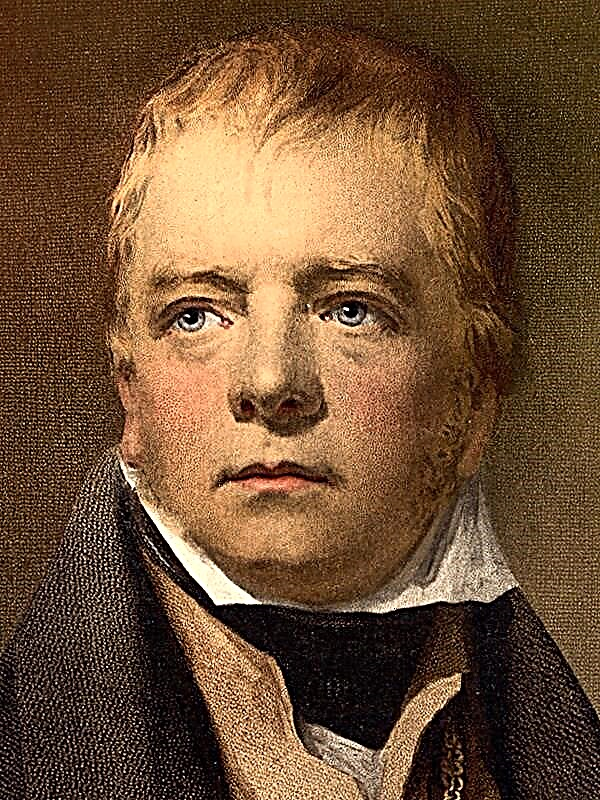

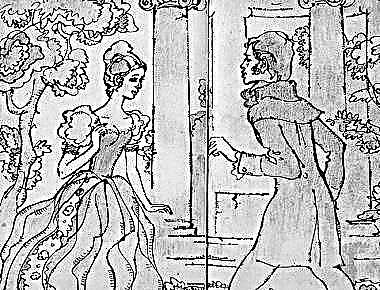

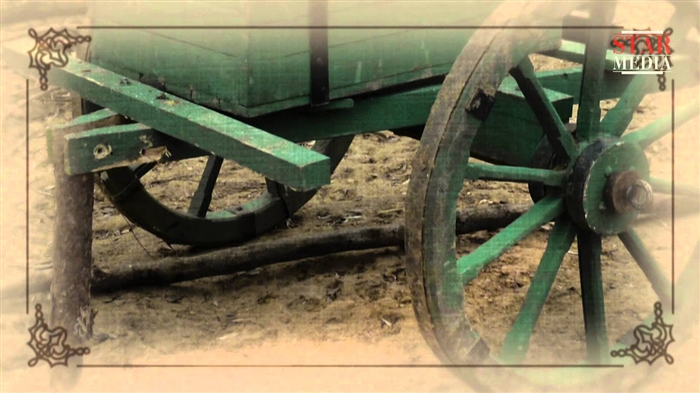 Roslavlev
Roslavlev Hungry city
Hungry city

